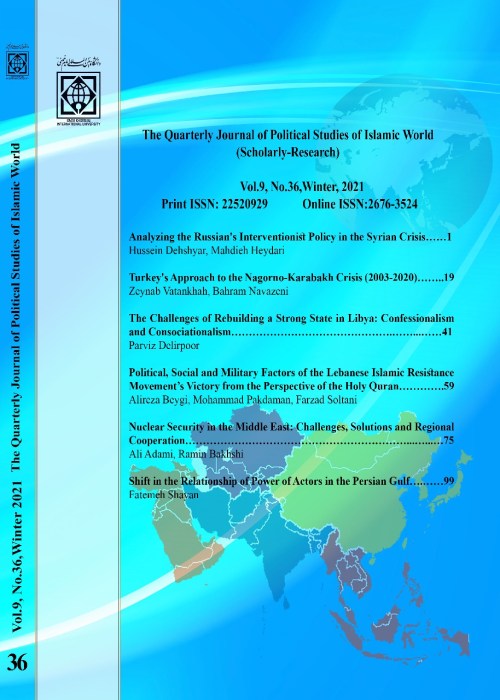Analysis of the Characteristics of Islamist Identity Policies in Saudi Arabia
Islamism in Saudi Arabia, which is based on the Wahhabi reading of Islam, forms the maximum spectrum in Saudi society. Despite the minimal spectra, like the Shiites and other Sunni sects, there are in Saudi Arabia, but due to the rule of the royal family and Wahhabism in the political and social spheres of society, in practice, such currents in society are not allowed to emerge and manifest their identity policies. Hence, the Islamist identity policies in Saudi Arabia are based on the reading of Wahhabi Islam and its currents, like official Wahhabism, Sahihs and jihadists. The main question of the article is what are the characteristics of Islamist identity policies in Saudi Arabia?
The method of this research is documentary analysis and data collection is in the form of library and interview.
Islamism in Wahhabi reading is one of the main foundations of Saudi Arabia's identity and the royal family derives its legitimacy from it. In this area, everything is exclusively in the hands of Wahhabism, and the phenomenon of religious pluralism and pluralism in Saudi Arabia has been prevented. The hallmarks of Islamist identity policies stem from currents such as official Wahhabism, Sahihs, and jihadists.
After examining the backgrounds, components, goals, challenges and obstacles of Islamist currents, the characteristics of Islamist identity policies were identified, which are: legitimizing the actions and decisions of the Saudi government, opposing Western culture and themes, takfir and jihad against polytheists, discriminatory measures against Shiites and depriving them of basic rights to life, strict laws against women and their anonymity, opposition and opposition to liberals and secularists, educational system and legal system based on the teachings of Wahhabism, opposition to democracy and denial people's political participation, the spread of Wahhabism, the emphasis on traditionalism and opposition to modernity.
- حق عضویت دریافتی صرف حمایت از نشریات عضو و نگهداری، تکمیل و توسعه مگیران میشود.
- پرداخت حق اشتراک و دانلود مقالات اجازه بازنشر آن در سایر رسانههای چاپی و دیجیتال را به کاربر نمیدهد.



